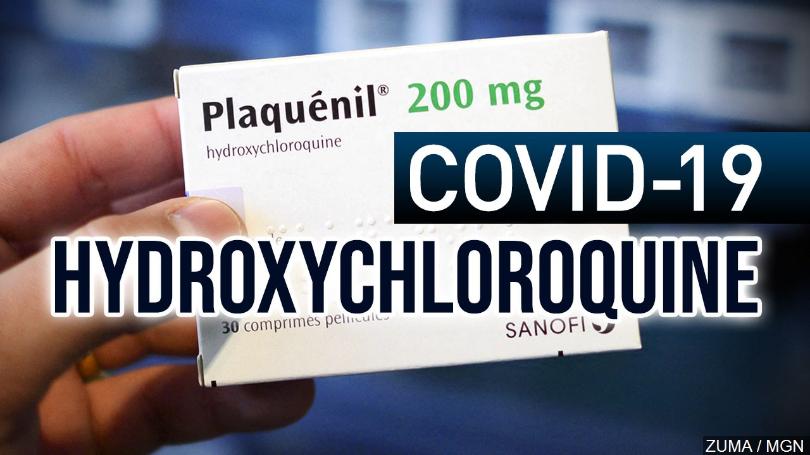A malaria drug originally approved in 1955, to treat Covid-19 outside of the hospital or in the setting of a clinical trial.
In a drug safety communication meant for health care providers, the FDA said it is “aware of reports of serious heart rhythm problems” in patients with Covid-19 treated with hydroxychloroquine or an older drug, chloroquine. The agency said it seeks to “remind health care professionals and patients of the known risks associated with both hydroxychloroquine and chloroquine.”
“We understand that health care professionals are looking for every possible treatment option for their patients and we want to ensure we’re providing them with the appropriate information needed for them to make the best medical decisions,” FDA Commissioner Stephen Hahn said in a statement. He said that the FDA encourages health care professionals to “closely screen and monitor” those patients who doctors decide to give the drugs to mitigate potential risks.
Hydroxychloroquine is a widely available generic drug, and manufacturers including Novartis and Teva have donated millions of doses. It was one of the first medicines identified in lab tests to have potential to fight the coronavirus SARS-CoV-2, which causes Covid-19.
Early reports, including several from a controversial French researcher, Didier Raoult, led to early enthusiasm for the drug.
But medicines that show promise in early studies frequently show no benefits in clinical trials, and data on the medicine have been more mixed, with some small studies showing a benefit, others showing none, and a few indicating that patients might be harmed by the drug.
Researchers at New York University wrote that of 84 consecutive patients treated with the combination of hydroxychloroquine and azithromycin, an antibiotic, 9 had changes in the QT interval, a measure of electrical pulses in the heart, that would put them at heightened risk of a severe arrhythmia or sudden cardiac death.
“Hydroxychloroquine and chloroquine can cause abnormal heart rhythms such as QT interval prolongation and a dangerously rapid heart rate called ventricular tachycardia,” the FDA said in its warning. “These risks may increase when these medicines are combined with other medicines known to prolong the QT interval, including the antibiotic azithromycin, which is also being used in some COVID-19 patients without FDA approval for this condition.”
The agency clearly states in the document that use should be restricted. “To decrease the risk of these heart problems that can be life-threatening, we are warning the public that hydroxychloroquine and chloroquine, either alone or combined with azithromycin, when used for COVID-19 should be limited to clinical trial settings or for treating certain hospitalized patients under the EUA,” the agency said. “FDA will continue to investigate risks associated with the use of hydroxychloroquine and chloroquine for COVID-19, and we will communicate publicly when we have more information.”
The EUA, or emergency use authorization, was an earlier clearance granted on March 30 to allow the use of hydroxychloroquine from a government stockpile to treat patients in the hospital. In an April 14 article in the New England Journal of Medicine, two doctors at Harvard’s Brigham and Women’s hospital, Benjamin N. Rome, and Jerry Avorn, wrote that the EUA was “widely yet incorrectly reported by Trump and others as meaning that the FDA had approved the drugs for this indication.” In the article, Rome and Avorn warned: “These developments represent fundamental threats to the U.S. drug-evaluation process.”
Lacking other options, doctors appear to have used hydroxychloroquine widely in hospitalized patients, and its use was recommended in guidelines produced by major hospitals. However, the drug’s exact benefit has been unclear, with some physicians reporting dramatic results and others not seeing much benefit at all.
One problem is that exactly how sick patients become with the disease is unpredictable, meaning that results can depend as much on which patients are selected for a study as which treatments are used. The only way to be sure is to randomly assign patients to a placebo.
More than 133 studies are currently running to determine if hydroxychloroquine is effective in various stages of Covid-19. Some results are expected soon, including results from a University of Minnesota study that aims to see if the drug can prevent infection in health care workers. Recently, Novartis announced it would fund its own study of the drug. It is also being studied in large studies run by the U.K. government and the World Health Organization.
“The FDA will continue to monitor and investigate these potential risks and will communicate publicly when more information is available,” Hahn said in his statement.



